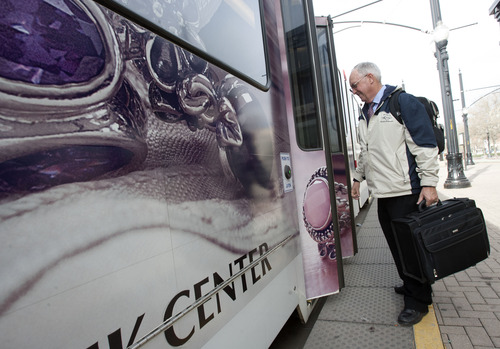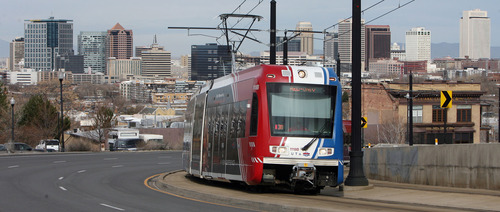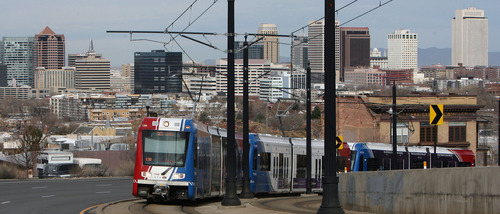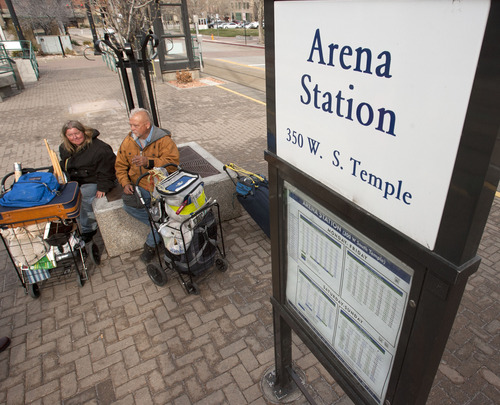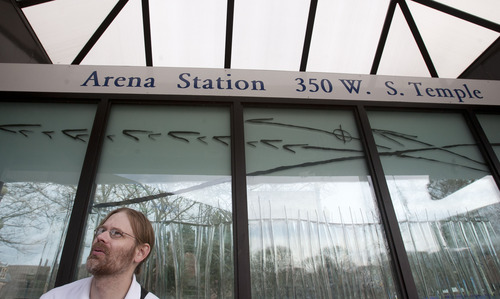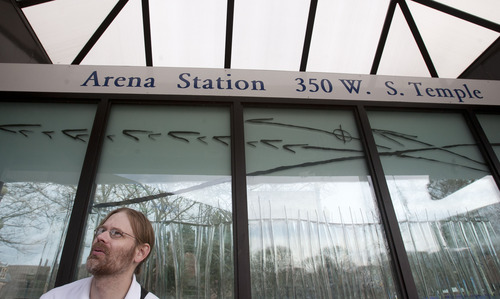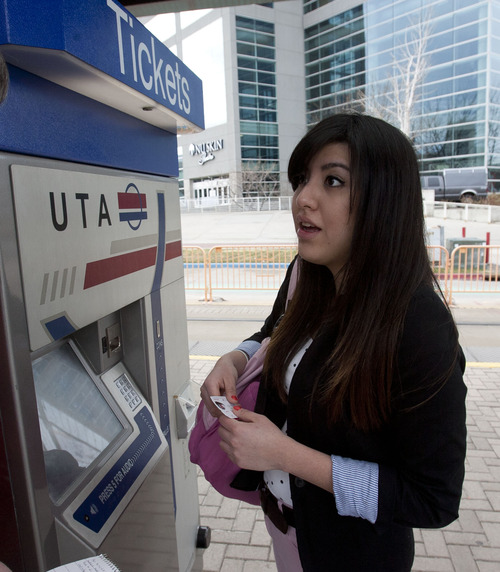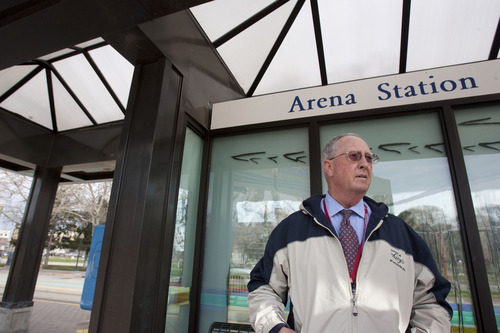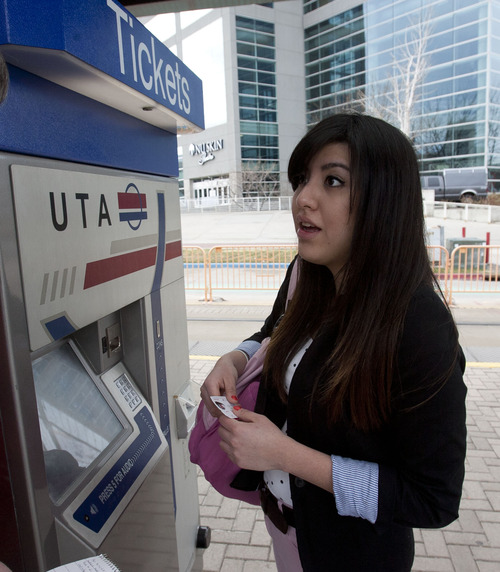This is an archived article that was published on sltrib.com in 2013, and information in the article may be outdated. It is provided only for personal research purposes and may not be reprinted.
Claudia De La Peña looked puzzled Monday as she counted, then recounted, her change from a TRAX ticket vending machine. Then she understood why it was less than expected: Fares had just gone up from $2.35 to $2.50 per single trip, now among the highest in the country.
"I didn't know that. I don't like it," she said at the EnergySolutions Arena Station. She explains she rides TRAX only occasionally, but soon may need to commute daily from downtown Salt Lake City to a job in West Valley City.
De La Peña did some quick calculation on what the higher fare will mean over a few weeks and said, "That's a meal for me."
The fare hike was a topic of conversation Monday for commuters who found it was no April Fools joke. It is the final of three increases approved in 2011, when the base fare was $2. Only a handful of transit agencies nationally now charge more than UTA.
Riders' reaction Monday ranged from saying the hike is pushing them to drive cars to conceding they have no alternative but to live with it. Other said they think they are getting their money's worth and that UTA is still a good deal for them.
David Graham, who commutes from Sugar House to Sandy, said he has ridden the bus and TRAX "because I think it's good for the environment. But now it's to the point that it's too expensive — so I don't care." He may return to his fuel-efficient car.
Dave Peterson commutes from south Davis County to Ogden on FrontRunner and on bus. He says that in the past two years his fares have increased by $2 per round trip and the commute grew from about 75 minutes to 105 minutes because of route and schedule changes.
"The people in Utah who are low income and need mass transit don't make up enough of the ridership to sustain it. This means UTA needs to focus on riders like me to survive — people who can take it or leave it," he said in an email. "The more they raise fares and/or cut service, the more they will alienate people like me."
Arley Martens and Karen Nies were down to their last $20. They have been staying in the Road Home shelter and working odds jobs trying to work their way home to Alaska. Martens says they noticed the fare hike as they have been using UTA to get to their temporary jobs.
"Every 10 or 15 cents really hurts when you are down to your last $20," Martens said. He added he doesn't have any options but to use UTA anyway — but said the homeless shelter was helping them obtain bus/TRAX passes because they are working.
Paul Gibbs was waiting for a train nearby. He says he will continue to commute on TRAX from Taylorsville to Salt Lake City because it saves him money — mostly because his employer covers most of the cost of his monthly pass.
"It's not terribly convenient," he said. "But it's cheaper."
Grant Johnson, a state employee who receives a subsidized pass, commutes from Clearfield to Salt Lake City on FrontRunner and TRAX. "It's a great deal for me," he said, noting that the state pays 70 percent of the pass cost. "I arrive at work with a smile on my face. I am able to read and listen to my MP3," instead of fighting traffic behind the wheel.
In December, as the UTA board adopted a 2013 budget that included Monday's fare increase, several anti-poverty and environmental-advocacy groups asked the UTA board to work toward lower fares to increase ridership.
Bill Tibbitts, associate director of the Crossroads Urban Center, one the groups that led that call, said UTA has met with the groups — and they feel UTA officials do want to make increasing ridership a priority.
But he said the groups — including Breathe Utah, Disabled Rights Action League, Salt Lake Community Action Program and Utahns for Better Transportation — have been trying to push the message "that when people aren't buying your service at the price you are charging, the answer isn't to raise the price. … UTA now needs some consistent pricing over time and more consistent service."
Last week, UTA General Manager Michael Allegra told the UTA board that even with the increase, UTA is "in the same ballpark" as most transit agencies. But data from an American Public Transportation Association survey of 169 agencies — updated for recent fare hikes through a Web search by The Salt Lake Tribune — found only four agencies with higher base bus fares. Another four matched UTA's fares.
Allegra told the UTA board that many systems with lower fares "receive more in sales taxes" to subsidize their systems. He said UTA — which covers areas from Brigham City to Payson — has longer trips than most systems, so riders get longer rides for their money, which tends to raise fares.
New fares
$2.50 (+15 cents) • single trip
$6.25 (+50 cents) • day pass
$83.75 (+$5.25) • monthly pass
$198 (+$9) • monthly pass, including FrontRunner


